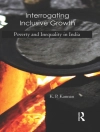Although much prized in daily conversation, good listening has been almost completely ignored in that form of political conversation we know as democracy. This book examines the reasons why so little attention has been paid to the listening aspect of democratic conversation, explores the role that listening might play in democracy, and outlines some institutional changes that could be made to make listening more central to democratic processes. The focus on listening amounts to a reorientation of democratic theory and practice, providing novel perspectives on enduring themes in democracy such as recognition, representation, power and legitimacy-as well as some new ones, such as silence. Eschewing the pessimism of the ‘realist’ turn in democratic theory, the book shows how attention to listening can breathe life into the democratic project and help us to realise some of its objectives. Drawing on practical examples and multidisciplinary sources, the book shows how listening should be at the heart or representative and deliberative democracy rather than peripheral to them. It develops a notion of dialogic democracy based on structured, ‘apophatic’, listening, and meets the challenge of showing how this could be incorporated in parliamentary democracies. What should we be listening out for? This book addresses the question of political noise and uses the idea of recognition to develop an account of politics that takes us beyond the Aristotelian speaking being towards a Deweyan notion of the ‘event’ around which publics coalesce.
Andrew Dobson
Listening for Democracy [PDF ebook]
Recognition, Representation, Reconciliation
Listening for Democracy [PDF ebook]
Recognition, Representation, Reconciliation
Beli ebook ini dan dapatkan 1 lagi GRATIS!
Bahasa Inggris ● Format PDF ● Halaman 256 ● ISBN 9780191505096 ● Penerbit OUP Oxford ● Diterbitkan 2014 ● Diunduh 6 kali ● Mata uang EUR ● ID 2926553 ● Perlindungan salinan Adobe DRM
Membutuhkan pembaca ebook yang mampu DRM












